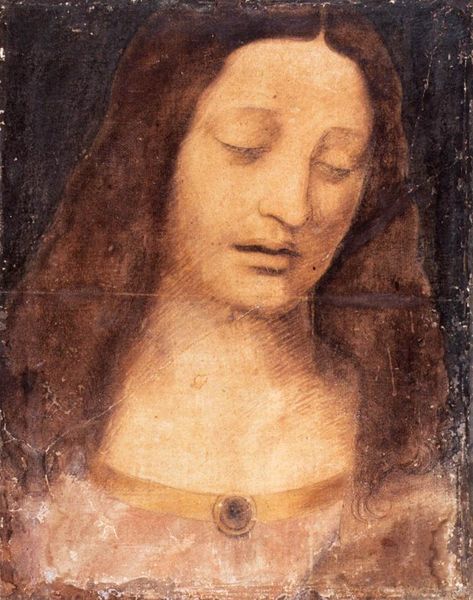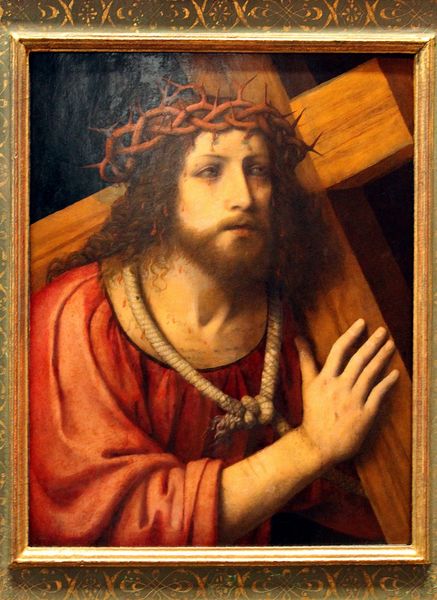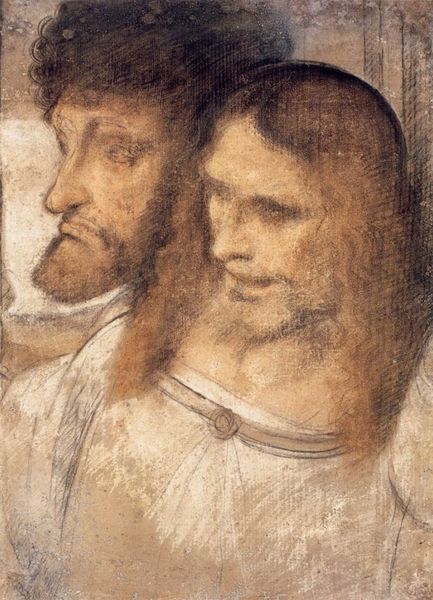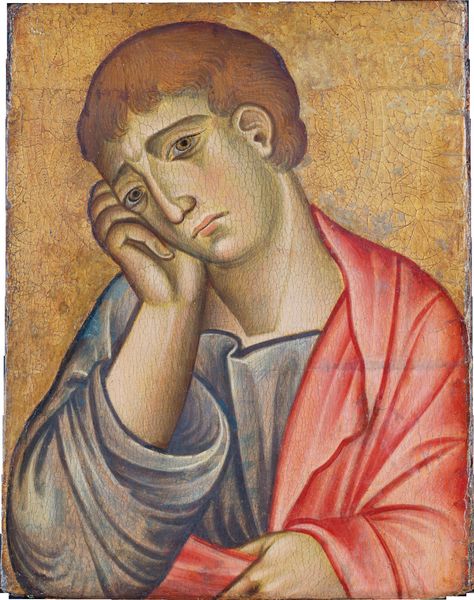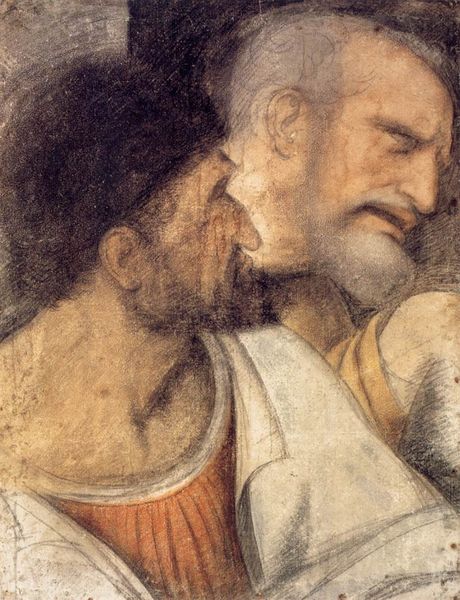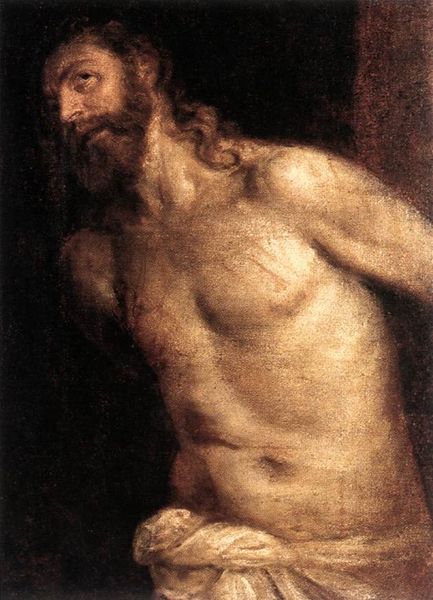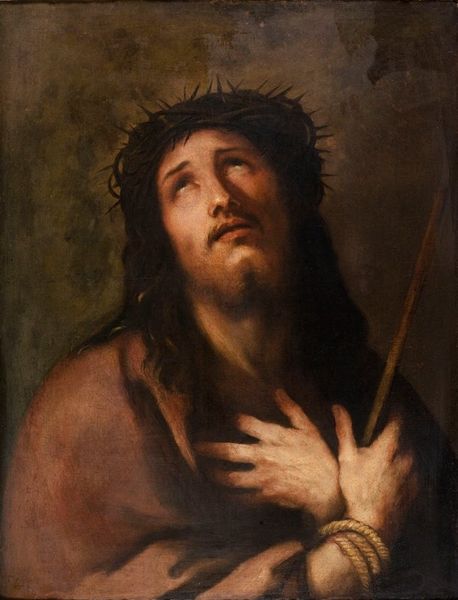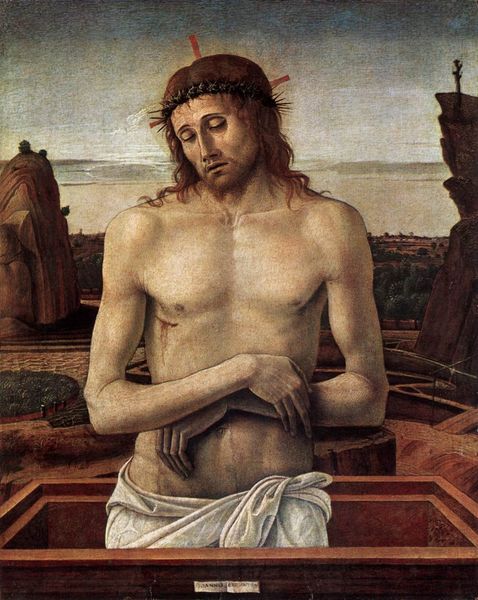
Head of St. James the Less
0:00
0:00
leonardodavinci
Musée des Beaux-Arts de Strasbourg, Strasbourg, France
drawing, pen
#
portrait
#
drawing
#
charcoal drawing
#
figuration
#
11_renaissance
#
oil painting
#
portrait reference
#
chiaroscuro
#
christianity
#
line
#
pen
#
portrait drawing
#
history-painting
#
academic-art
#
italian-renaissance
#
portrait art
#
christ
Copyright: Public domain
Leonardo da Vinci’s Head of St. James the Less was made in the late 15th or early 16th century, using oil paint on a prepared panel. The use of oil allows for careful layering and blending of color, a technique Leonardo mastered. Look closely, and you’ll see how he builds up the image through countless thin applications, creating a sense of depth and atmospheric perspective. This wasn’t just a matter of skill, but labor. The grinding of pigments, mixing of oils, and preparation of the panel, all required time and expertise. The social context of this work is crucial too. Leonardo was part of a workshop system, where assistants would often contribute to the production of paintings. While Leonardo was undoubtedly the guiding hand behind the design, the physical execution may have involved others. So next time you look at a painting, remember it’s not just an image, but a testament to the materials, processes, and social relationships that brought it into being. By understanding these things, we can appreciate the full richness of works of art and craft.
Comments
No comments
Be the first to comment and join the conversation on the ultimate creative platform.
